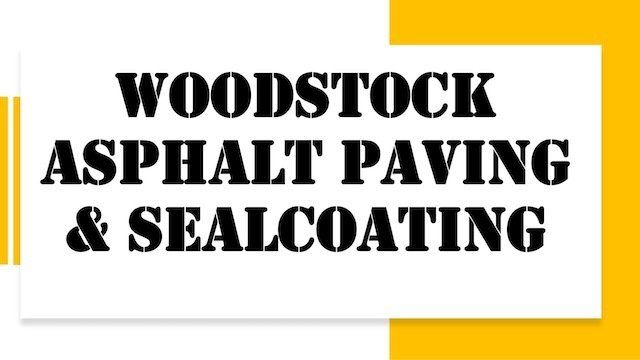Tar & Chip
When it comes to installing a new driveway, you will have a number of choices. Asphalt, gravel, concrete, and pavers, to name a few, are some of the most typical driveway materials. However, there is another option, the tar and chip driveway, that you may not be aware of. In order to make an informed decision, it's vital to understand that the typical cost might range from $2 to $5.
This is also a popular choice among homeowners, and you may have driven miles over it without knowing realizing it was a tar and chip surface. So, let's take a look at what this style of driveway entails and the key characteristics that surround it.
What is a tar & chip driveway?
Tar and chip driveways are a low-cost alternative to asphalt. They are also known as chip-and-seal, seal chip, macadam, or liquid-asphalt-and-stone driveways. The surface of this mixture of hot liquid asphalt and stone chips is more substantial than pure gravel. The procedure is pouring molten, hot tar over a gravel base to create a thin asphalt foundation. Then, on top of it, layers of crushed, loose stones are compacted. Finally, you're left with a dramatic driveway with a rough texture. Furthermore, the crushed stones can be customized to complement your surroundings. A tan or brown tint, for example, is suitable for a desert area, but grey stones work well in a wooded setting. It is also stable due to the compacted stone surface, giving a smooth, bump-free ride.
Call us today at 404-724-8034
What does a tar & chip driveway cost?
Tar and chip driveways are less expensive than asphalt pavement but more expensive than gravel driveways. The price per square foot usually ranges from $2 to $5. Of course, the total cost will include labor and materials charges in your area. Furthermore, when comparing long-term costs, chip seal driveways are far less expensive to maintain and repair than asphalt or concrete driveways.
How long does a chip seal driveway last?
Tar and chip driveways should last between 7 and 10 years. After this time has passed, you will need to add another coating of tar and stones. This is because the crushed stone layer might wear away over time as a result of regular use. As a result, if you want a driveway that will endure more than ten years, you should choose asphalt or concrete. However, resurfacing a chip seal driveway is far less expensive than resurfacing asphalt or concrete.
How do you maintain a tar & chip driveway?
If you have a tar and chip driveway, you will need to do some basic maintenance on it on a regular basis. There is no requirement for frequent sealing, for example. During the snowy, wintry months, however, problems may occur. When you use a snowplow to clear the driveway, the stone top layer may be damaged. To avoid this, make sure the plow is barely a few inches over the ground. The residual film can then be removed using a shovel. The best option is to wait for the snow to melt naturally. Furthermore, if you complete the operation with a shovel or a snowblower, you will not encounter this issue.
Call us today at 404-724-8034
What are the Pro's & Con's of tar & chip driveways?
Tar chip driveways, like all other driveways, have their own set of benefits and drawbacks. So, let's take a look at them:
The Pros:
Low cost: As previously stated, tar and chip driveways cost somewhat more than gravel and slightly less than asphalt. Furthermore, they have lower maintenance expenses, making them more cost-effective over time.
Good traction: Tar-and-chip driveways have an upper layer consisting of distinct stones, which ensures optimal traction. As a result, the resulting rough surface is ideal for a non-slippery road.
What Are The Most Effective Driveway Maintenance Techniques? Let's go over them all together!
Natural beauty: Because this type of road is composed of natural stones, it has a natural, classic, and elegant appearance.
Low Maintenance: Tar and chip driveways require less care because they don't need to be sealed on a regular basis. Small cracks may typically be mended without the assistance of a professional. The tar melts and fills the cracks on hot days. After that, the gaps are naturally filled by stones.
Longevity: While a tar and chip driveway does not last as long as an asphalt driveway, it can endure up to 10 years, which is plenty.
Simple & Easy Construction: Installation of a tar and chip driveway in your parking lot is basic and straightforward. It can also be installed over existing driveway materials that are in good condition.
The Cons:
Snow Removal: Without proper precautions, the use of snowplows can damage the driveway surface. This is not really an issue in the metro Atlanta area, but similar equipment "scraping" the surface of the driveway can damage it.
Limited contractors: Installing any driveway is not a DIY project. And one of the major disadvantages while constructing tar and chip driveways is that there are limited contractors who hold the required expertise to handle the job. Therefore, it is necessary that you look for the best contractors in your vicinity — who specialize in this type of project — before offloading your task.
In Summary
If you were unfamiliar with the term before reading this post, you now understand the fundamentals of a tar and chip driveway. Decide if this alternative is better for you than an asphalt cement, asphalt driveway, or a gravel driveway after reviewing all of the qualities listed above. If so, get a good contractor and get started.
We proudly serve the following cities: Acworth, Alpharetta, Atlanta, Austell, Brookhaven, Canton, Cartersville, Dallas, Decatur, Doraville, Douglasville, Duluth, Dunwoody, East Cobb, Hiram, Johns Creek, Kennesaw, Lilburn, Mableton, Marietta, Milton, Powder Springs, Roswell, Sandy Springs, Stone Mountain, Suwanee, Tucker, Villa Rica, and Woodstock Ga.
Copyright 2022 | Woodstock, Ga 30188
This is a referral website. We connect you to a licensed professional


